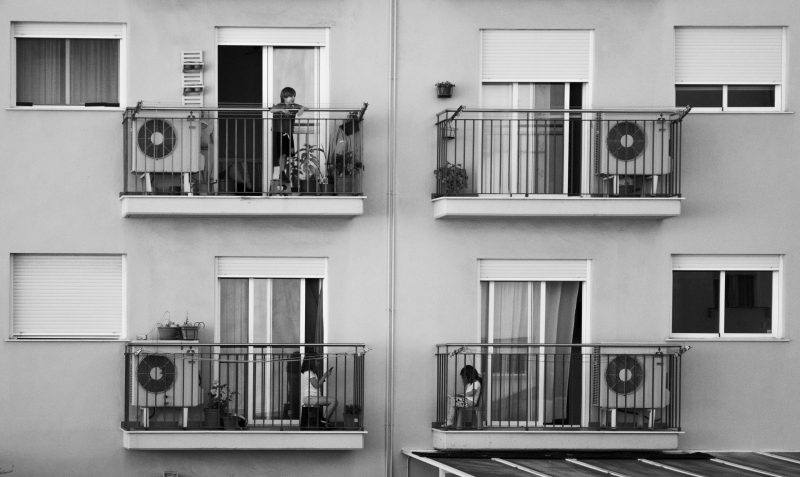A neighborhood is an area in a town that surrounds someone’s home or those who live there. But do you know that a neighborhood can also affect the families who live there?
Neighborhoods, as a community, can significantly impact a family’s life. When a neighborhood is supportive and nurturing, it can help families thrive. Meanwhile, a “bad” neighborhood could have a harmful effect on the families in the neighborhood.
This article will discuss how a neighborhood can affect families’ lives — the family dynamics, the children, and parents’ lives. Then the latter part will discuss how you can make a positive neighborhood environment that will benefit your family.
Influence of the neighborhood on family dynamics
The neighborhood can actively bring significance to the family dynamics in several ways. This impact depends on how the situation in the neighborhood currently is.
For example, a good, supportive, and healthy neighborhood can provide families with a lot of social and parental support, leading to positive outcomes such as better mental health and parenting practices.
On the other hand, a bad neighborhood, with high levels of crime and violence can be bad for families, where it could bring stress and anxiety to the families, leading to depression and poor academic performance.
Effects of the neighborhood on children’s development
Neighborhoods also affect children, especially their development. This effect can be shown in several ways, such as how the educational quality and opportunities differ depending on how the neighborhood is.
Exposure to high crime rates and violence in bad neighborhoods can also affect the children’s mental health and well-being. And the neighborhood’s social quality can also influence the children’s behavior and development.
Educational opportunities and school quality
Children who grew up in certain neighborhood conditions surely will affect their educational quality. Growing up in a neighborhood with good and high-quality schools will give children better opportunities and academic outcomes than those on the opposite side. This makes it crucial for parents to research schools in their area and ensure their children’s education is going smoothly.
Exposure to crime and neighborhood safety
Just as certain good points of a neighborhood can benefit the children and family, a bad neighborhood with high crime rates and violence can be detrimental to children’s development.
High exposure to crime can surely impact children’s mental health and well-being. To avoid this, parents need to teach their children how to avoid dangerous situations, how to act when they are in those situations, and tell the authorities when they see suspicious activity.
Influence of neighborhood peers and social networks
Social networks and peer relationships in neighborhoods also can influence children’s development, especially their behavior and social development.
Being in a good neighborhood will eventually lead to better behavior in children due to better peers and social networks than in bad neighborhoods. Parents can also have a certain part in helping this by encouraging positive peer relationships with the children.
Impact of neighborhoods on parental well-being
Other than children, a neighborhood can also impact the parent’s life. It can benefit or harm the parent’s mental health and well-being.
An example would be how a good neighborhood can help parents with social support and parenting resources, improving their mental health and providing economic opportunities. On the other hand, a bad neighborhood can increase parental stress levels and other mental health outcomes.
Social support networks and parenting resources
Being in a neighborhood that has strong social support and networks helps parents with their parenting stress and their overall mental health. In supportive neighborhoods, parents can help each other by sharing, joining communities, or even seeking helpful parenting resources from certain groups or counseling services.
Economic opportunities
Neighborhoods with a high concentration of economic opportunities will benefit parents, particularly those struggling to care for their families. This will also assist the parents in reducing their financial load and stress. Parents may readily discover work opportunities in their communities while also contributing to the growth of their community.
Neighborhood safety and its effect on parental stress
Other than all the positive outcomes in a good neighborhood, being in a bad one will surely add more parental stress to the parents. One of the factors is the safety of the neighborhood.
Being in a neighborhood with inadequate safety requires parents to keep close tabs on their children. They need to ensure that the children stay away from suspicious and dangerous activities in the neighborhood.
Creating a positive neighborhood for families
One of the most essential things you can do to keep your family healthy is to ensure that you have a supportive, safe, resourceful, and healthy community. This may be accomplished by encouraging safety and security, fostering strong social interactions in the community, and even offering access to many useful services. Through this, parents can easily participate in numerous community events, get involved in their children’s education, and not worry about their children’s safety.
In conclusion
Rather than just being a family’s living space, a neighborhood can greatly impact families. This impact can come in a positive or even negative way. So, as better citizens and family members, one needs to make sure that they are able to create a more positive neighborhood environment for their families.
If you would like to see more resources on neighborhoods, check out the Family Science Labs. The lab uses the research of the Institute for Life Management Science to produce courses, certifications, podcasts, videos, and other tools. Visit the Family Science Labs today.
Photo by Pablo de Haro on Pexels


